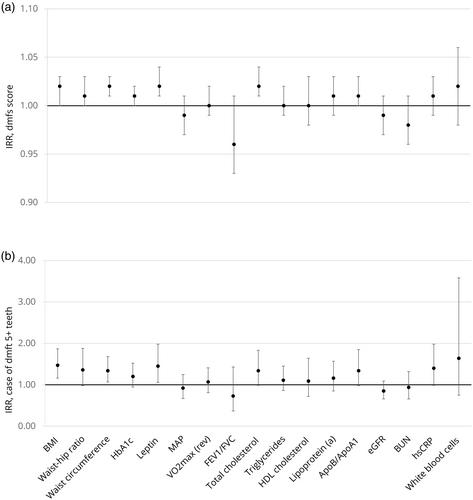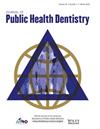Childhood caries is associated with poorer self-rated general health in adulthood, but it remains unclear whether that holds for physical health and aging. The aim of this study was to identify whether age-5 caries is associated with (a) biomarkers for poor physical health, and (b) the pace of aging (PoA) by age 45 years.
Participants are members of the Dunedin Multidisciplinary Health and Development Study birth cohort. At age 45, 94.1% (n = 938) of those still alive took part. Data on age-5 caries experience and age-45 health biomarkers were collected. The PoA captures age-related decline across the cardiovascular, metabolic, renal, immune, dental and pulmonary systems from age 26 to 45 years. We used (a) generalized estimating equations to examine associations between age-5 caries and poor physical health by age 45 years, and (b) ordinary least squares regression to examine whether age-5 caries was associated with the PoA. Analyses adjusted for sex, perinatal health, childhood SES and childhood IQ.
High caries experience at age-5 was associated with higher risk for some metabolic abnormalities, including BMI ≥30, high waist circumference, and high serum leptin. Those with high caries experience at age-5 were aging at a faster rate by age 45 years than those who had been caries-free.
Oral health is essential for wellbeing. Poor oral health can be an early signal of a trajectory towards poor health in adulthood. Management for both conditions should be better-integrated; and integrated population-level prevention strategies should be foundational to any health system.



